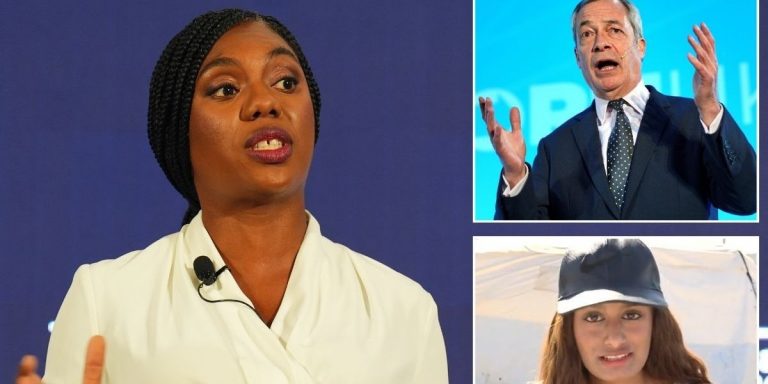Sir Keir Starmer met a senior member of Bangladesh’s ousted ruling party last month, despite the Awami League facing accusations of embezzlement and of allowing its security forces to kill protesters.
The UK prime minister met Anwaruzzaman Chowdhury, the ousted mayor of the city of Sylhet and a key party figure, at a dinner held by Labour in Glasgow’s Crowne Plaza Hotel in December. The pair were photographed talking at the black-tie event held for Labour party backers.
The meeting was the culmination of decades of bridge-building between the Awami League and Labour that have helped the UK party win key parliamentary seats and make inroads with Britain’s Bangladeshi community.
However, corruption allegations levied against certain members of the former Bangladeshi ruling family have drawn in Starmer’s under-pressure City minister, Tulip Siddiq, and raised questions about the wisdom of the long-forged relationship between the two parties.
The Awami League — led by Siddiq’s aunt Sheikh Hasina — ruled the south Asian country for 16 years before being toppled in a student-led protest last summer.
Hundreds of people in Bangladesh were killed over the summer as police and supporters of Sheikh Hasina clashed with protesters. Forces tied to the regime were accused of using disproportionate force against civilians, including firing live rounds.

Siddiq was named in a probe last month by the Anti-Corruption Commission in Bangladesh amid allegations that her family siphoned off $5bn from a nuclear power plant project. The family denies all allegations of wrongdoing.
Earlier this week Siddiq also referred herself to the government’s ethics watchdog after the Financial Times revealed that she had been gifted a £195,000 property in London’s King’s Cross by a person linked to the Awami League.
Social media posts reveal that Labour has grown closely enmeshed with the Awami League over the years, including accepting endorsements from elected Bangladeshi politicians.
Starmer has been pictured accepting a donation cheque on behalf of Labour from a person with links to the Awami League, while both he and Sadiq Khan, the Labour mayor of London, have been photographed meeting key figures, including Chowdhury.
Khan posted on Facebook it was a “real honour” to meet Chowdhury last May, after he received an endorsement from him ahead of the capital’s mayoral elections. During the meeting, Chowdhury said he had been campaigning for Khan for more than a decade.
Chowdhury did not respond to a request for comment.

The relationship has also helped Labour reach into Britain’s Bangladeshi community ahead of general elections. FT analysis of electoral data suggests that there were at least 17 parliamentary seats where the voting-age Bangladeshi population was larger than Labour’s winning majority last July.
Starmer’s own seat of Holborn and St Pancras — which he won with a majority of around 11,000 last summer — has more than 6,000 voting-age residents of Bangladeshi origin.
Awami League supporters campaigned across the country for Labour in last year’s general election, appearing at events in Lancashire and Greater Manchester and accompanying Siddiq on campaigning trips, according to social media posts and people with knowledge of the events.
One Labour official told the FT that “inroads” into the community had been partly driven by the association between Siddiq and her once-ruling family in Bangladesh.
Her grandfather, Sheikh Mujibur Rahman, helped lead the country to independence from Pakistan in 1971 before being assassinated four years later alongside many of her family. Only Siddiq’s mother, Sheikh Rehana, and her aunt survived.
“Siddiq’s family are the Kennedys of Bangladeshi politics,” the official said.
Sheikh Hasina, who secured her fourth term in office in 2023 amid allegations of vote rigging, had long been seen as a secular force against the region’s Islamist politics. But the regime was accused of siphoning funds from the country’s banks, and using detention without charge to silence dissidents.

Bangladesh’s International Crimes Tribunal on Monday issued arrest warrants for Sheikh Hasina and 11 of her top officials for their alleged role in enforced disappearances.
Chris Hopkins, political research director at pollster Savanta, said Labour was more reliant on the diaspora vote than were its political rivals — forcing it to forge alliances to reach certain communities.
“It might not be front of mind in the Westminster bubble, but it will be front of mind for these communities and rightly or wrongly Labour will become guilty by association,” Hopkins added.
A grassroots organisation Labour Friends of Bangladesh — which was founded in 2005 but has become evermore closely linked to the Awami League — has also played a prominent role in co-ordinating Labour campaigning efforts.
“In the past few years [Labour Friends of Bangladesh] was heavily used for promoting Awami League,” said Ohid Ahmed, a former member of the League’s main political rivals the Bangladesh Nationalist Party, who founded the grassroots group but left Labour in 2010. “I don’t think anyone from the other side or who believed in other political parties . . . was even able to attend their meetings.”

Howard Dawber, chair of Labour Friends of Bangladesh since 2010 and London’s deputy mayor, said the organisation has supporters of all parties and “worked very hard not to get dragged into Bangladeshi politics”. He added: “It’s a hard tightrope to walk.”
Now, Labour’s use of the Awami League party as a conduit to reach out to a minority community may be forced to change.
“Labour historically understood the Awami League was a good vehicle to get votes, but despite a lot having changed since it holds the misguided view that it still commands support in the community,” said Ashraf Hoque, an associate professor of social anthropology at University College London.
As well as the diminished standing of the Awami League, treating British-Bangladeshi voters as a single bloc fed unhelpful narratives about the community, he added. “It’s a dysfunctional feature of Labour politics.”
Labour said: “The UK and Bangladesh have long-standing ties on areas of mutual interest such as trade and security. It’s perfectly legitimate for politicians to meet others from across the globe, as MPs from all parties have. Again, this doesn’t amount to an endorsement of their policies.”
Additional reporting by Oliver Hawkins

























+ There are no comments
Add yours